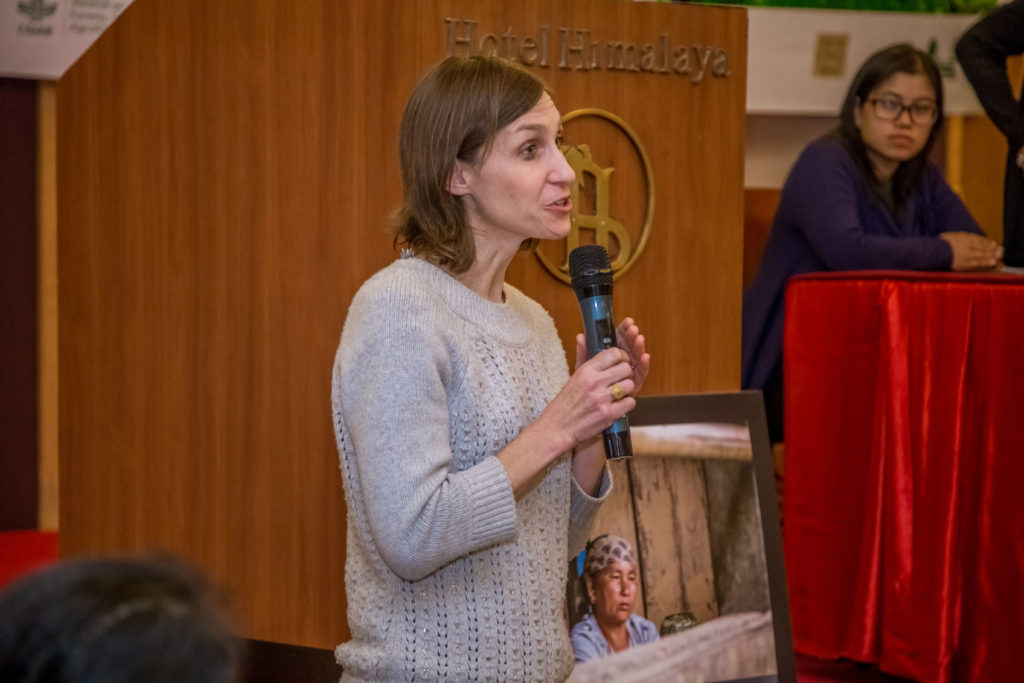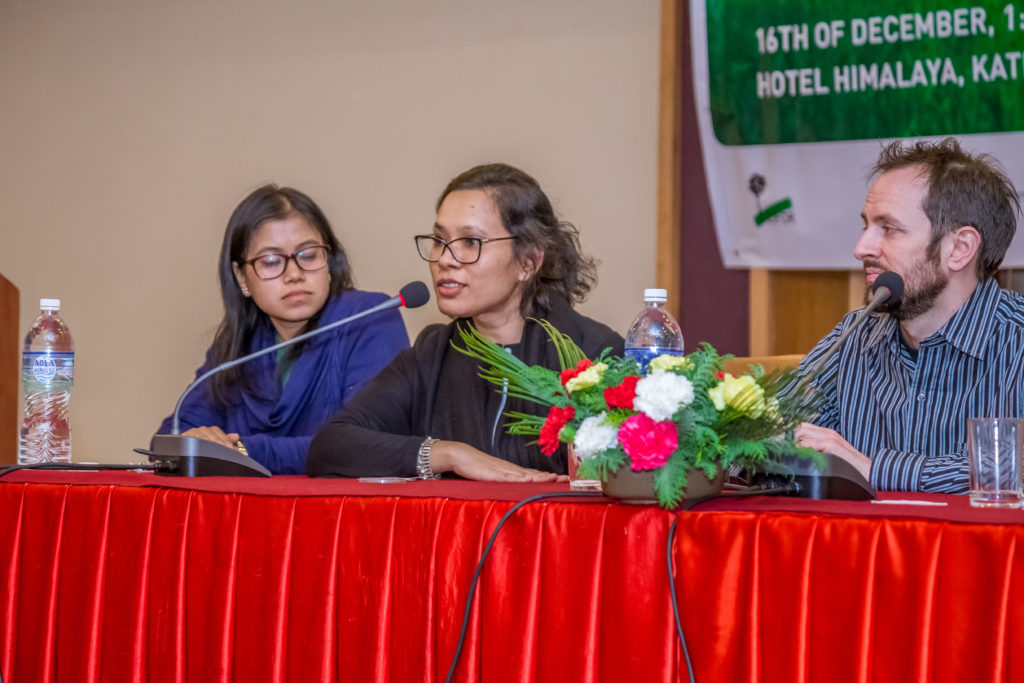Date/Time
Date(s) - 16/12/2017
All Day
Categories No Categories
MARIS partners organize discussion event in Kathmandu on migration in Nepal and Asia
MARIS partners the International Water Management Institute (IWMI) and the Center for International Forestry Research (CIFOR) with the support of Water, Land, Ecosystems (WLE) convened researchers, policy-makers, and thought leaders to discuss the state of migration in Nepal and the world. As a Social Science Baha public event, participants and speakers focused on what migration means for the homefront. Speakers asked participants to reflect on how communities change when migrants leave their homes.
Researchers presented research on how migration is shaping social change across Asia. Researchers from the Center for People and Forests (RECOFTC), the Nepal Madesh Foundation, IWMI, and the Agriculture and Forestry University shared from their findings the factors that are leading to migration and the outcomes this is creating for communities. The Migration, Agriculture and Resilience: Initiative for Sustainability network is committed to providing a platform for dialogue on migration so that the level of consciousness on issues of migration can be raised. More information on the MARIS Kathmandu event can be found in the Kathmandu Post article, A third of migrant households in Sunsari remain poor: Study.

Floriane Clement, Gender Focal Point and Nepal Country Representative at the International Water Management Institute, introduces speakers.

Bimbika Basnett, Gender Focal Point and scientist at the Center for International Forestry Research, speaks about what’s at stake for migration in Nepal on a panel.

Fraser Sugden, International Water Management Institute affiliated researcher and Senior Lecturer at the University of Birmingham, shares how the world continues to be shaped by migration.





